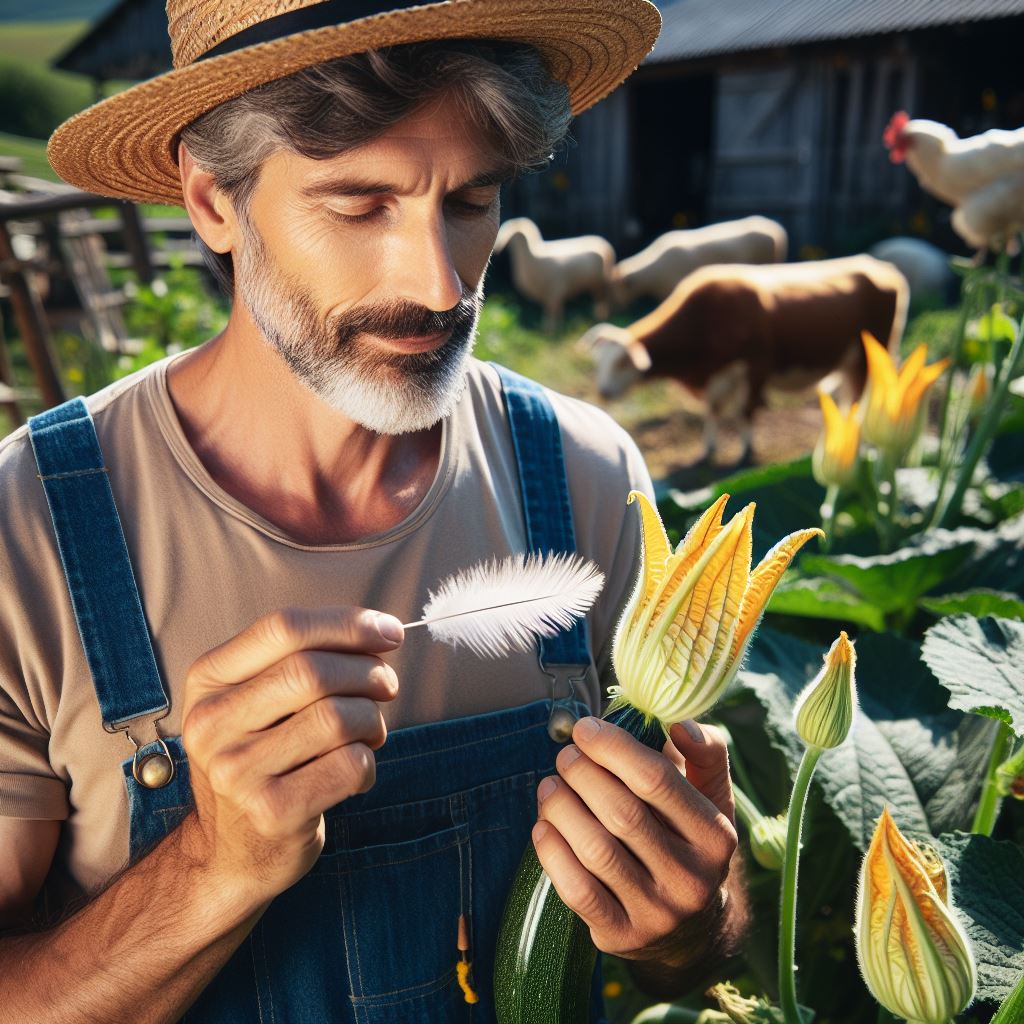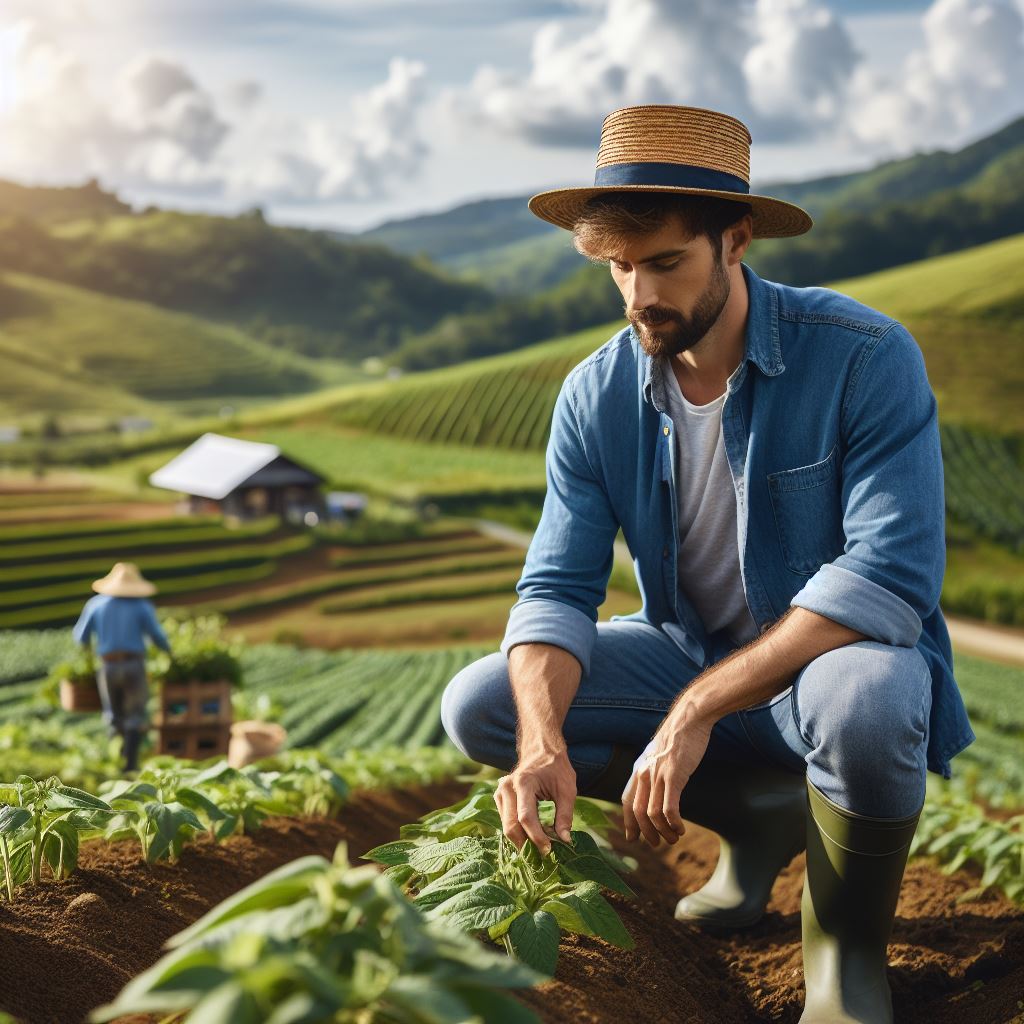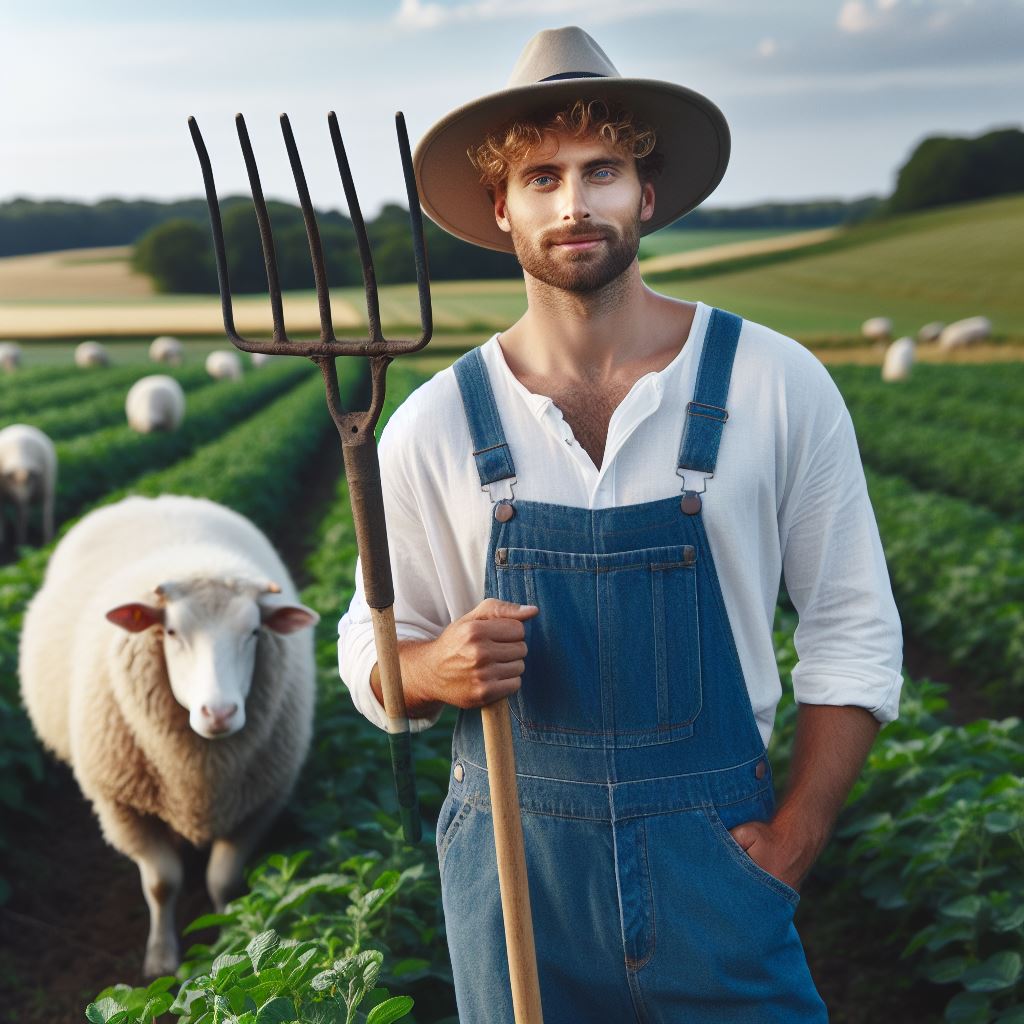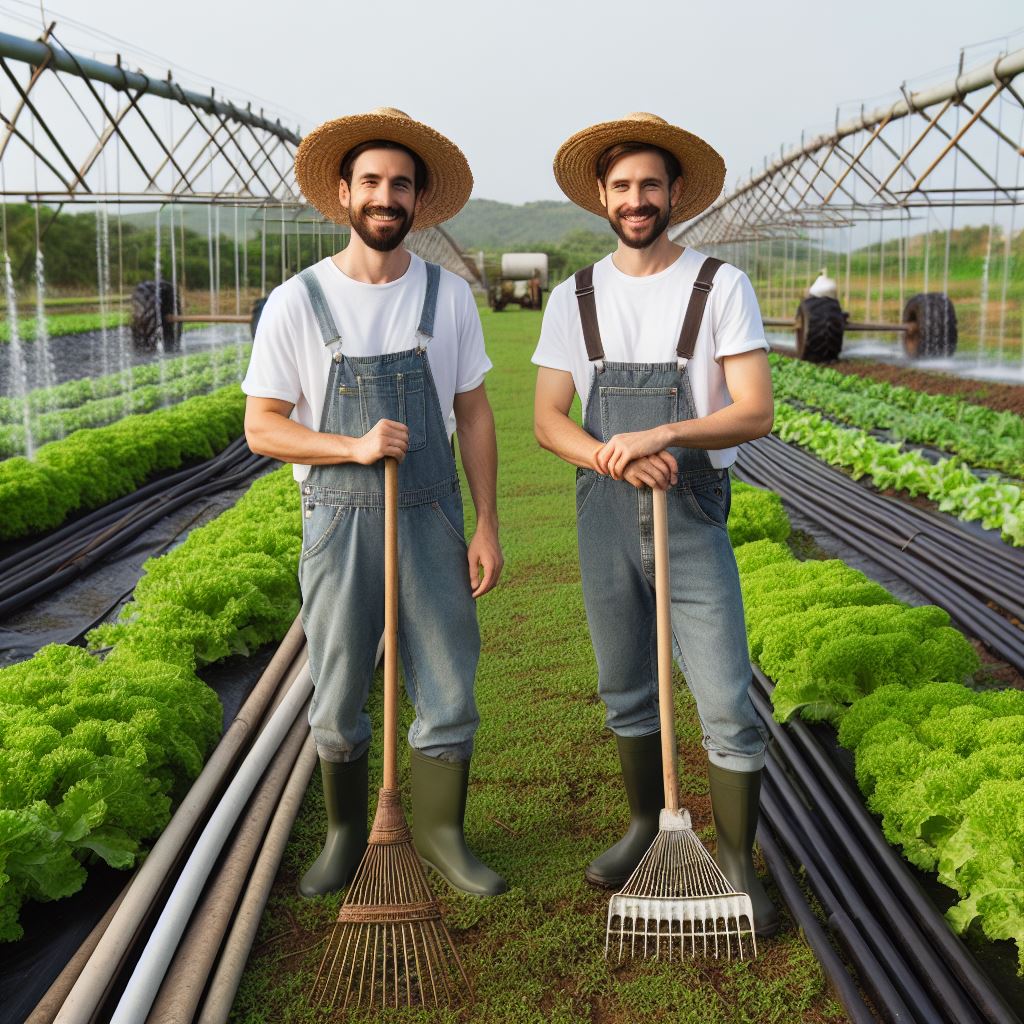Introduction
Pollinators play a crucial role in organic farming by enhancing crop yields and quality.
Organic farming is important for promoting healthy ecosystems, protecting biodiversity, and reducing environmental harm.
In the intricate tapestry of organic farming, an unsung cadre of heroes emerges—the pollinators.
These vital beings, from buzzing bees to fluttering butterflies, play a pivotal role in the symbiotic dance of nature within organic agricultural landscapes.
As guardians of biodiversity and facilitators of fruitfulness, pollinators weave a delicate yet resilient thread that binds together the flourishing harmony of sustainable cultivation.
In this exploration, we delve into the extraordinary world of these unsung heroes, uncovering their profound impact on organic farming and the intricate balance they bring to our ecosystems.
Join us on a journey to appreciate the often overlooked but indispensable role of pollinators in the thriving realms of organic agriculture.
What are pollinators?
Definition of pollinators
Pollinators are animals, primarily insects, birds, and bats, that transfer pollen from the male reproductive organs to the female reproductive organs of flowering plants.
Examples of common pollinators (bees, butterflies, etc.)
- Bees: Bees are one of the most important pollinators, responsible for pollinating a wide variety of crops and plants.
- Butterflies: Butterflies are beautiful creatures that play a significant role in pollination, especially for flowering plants with deep or tubular-shaped flowers.
- Moths: Moths, similar to butterflies, are pollinators known for their night-time pollination activities.
- Hummingbirds: These charming birds are essential pollinators for plants with bright, tubular-shaped flowers.
- Bats: Bats are nocturnal pollinators that visit night-blooming flowers, particularly in tropical regions, aiding in their reproduction.
Their role in plant reproduction
- Transfer of pollen: Pollinators facilitate the transfer of pollen, which contains the male gametes, from the anther of one flower to the stigma of another flower.
- Fertilization: Once the pollen reaches the stigma, it travels down the style and fertilizes the ovary, leading to the production of seeds.
- Genetic diversity: By allowing cross-pollination between different plants, pollinators contribute to genetic diversity, which is essential for the survival and adaptation of plant populations.
- Fruit and seed production: Successful pollination results in the formation of fruits, which serve as protective coverings for seeds, ensuring their dispersal and future plant growth.
- Ecosystem stability: Pollinators are crucial for maintaining the health and stability of ecosystems by supporting the reproduction of numerous plant species.
- Food production: Many crops, including fruits, vegetables, nuts, and oilseeds, rely on pollinators for their successful yield, ensuring food security for humans and wildlife.
- Habitat creation: Pollinators, through their search for food and shelter, help in the formation of habitats, such as bee colonies and butterfly gardens, supporting biodiversity.
- Economic impact: Pollinators contribute significantly to the economy through improved crop yield and the production of various agricultural products.
In short, pollinators are vital heroes in organic farming and the natural world.
They play a crucial role in plant reproduction by transferring pollen, promoting genetic diversity, and ensuring the production of fruits and seeds.
Pollinators are essential for ecosystem stability, habitat creation, and support global food production.
Understanding and protecting these remarkable creatures are fundamental for maintaining a sustainable and thriving environment.
Read: Local Markets: The Impact of Organic Produce
The decline of pollinators
Reasons for decline (pesticides, habitat loss, climate change, etc.)
- Pesticides: The use of pesticides in modern agriculture has led to a decline in pollinators.
- Habitat loss: Destruction of natural habitats due to urbanization and deforestation has impacted pollinator populations.
- Climate change: Changes in temperature and weather patterns have disrupted pollinator behavior and affected their survival.
- Monoculture farming: The proliferation of single crop farming reduces the diversity of plants available for pollinators.
Consequences of the decline for organic farming and the environment
- Decreased crop yield: With fewer pollinators, organic farmers face lower crop productivity and reduced profitability.
- Loss of biodiversity: Declining pollinator populations threaten the biodiversity of plants and ecosystems.
- Altered ecosystem functions: Pollinators play a crucial role in the pollination process, which affects the health and stability of ecosystems.
- Threat to food security: The decline of pollinators poses a significant risk to global food production and security.
- Reduced genetic diversity: Pollinators contribute to genetic variation within plant populations, impacting their ability to adapt to environmental changes.
In essence, the decline of pollinators, caused by factors such as pesticides, habitat loss, climate change, and monoculture farming, has severe consequences for both organic farming and the environment.
Reasons for decline
The use of pesticides in agriculture has a detrimental impact on pollinator populations.
Transform Your Agribusiness
Unlock your farm's potential with expert advice tailored to your needs. Get actionable steps that drive real results.
Get StartedHabitat loss due to human activities disrupts the natural habitats of pollinators, leading to a decline in their numbers.
Climate change further compounds the problem by affecting the behavior and survival of pollinators.
Additionally, the prevalence of monoculture farming reduces the availability of diverse plants for pollinators to forage on.
Consequences of the decline for organic farming and the environment
The consequences of the decline in pollinators are significant.
Organic farmers, who rely on pollinators for crop pollination, experience reduced yields and profitability.
The loss of pollinators also threatens the overall biodiversity of plants and ecosystems.
Ecosystems rely on pollinators for key functions, such as plant reproduction and seed dispersal, which directly impact their health and stability.
Moreover, the decline of pollinators poses a threat to global food security.
Pollination is essential for the production of many fruits, vegetables, and nuts consumed by humans.
Without sufficient pollinators, crop yields around the world would decrease, leading to food shortages and increased prices.
Lastly, the decline of pollinators can result in reduced genetic diversity within plant populations.
Pollinators play a crucial role in cross-pollination, which promotes genetic variation and enables plants to adapt to changing environmental conditions.
Without this genetic diversity, plants become more vulnerable to pests, diseases, and environmental stressors.
In fact, the decline of pollinators poses a critical challenge for organic farming and the environment.
Addressing the factors contributing to their decline, such as reducing pesticide use, preserving natural habitats, mitigating climate change, and promoting diverse farming practices, is essential for the preservation of pollinators and the sustainability of agriculture.
Protecting and supporting pollinators is not only crucial for organic farmers but also for the health and well-being of the entire ecosystem.
Read: Organic Certification: Process and Benefits

How pollinators benefit organic farming
- Increased crop yields: Pollinators play a crucial role in pollinating crops, resulting in higher yields.
- Promotion of genetic diversity: By transferring pollen, pollinators help in the cross-pollination of plants, ensuring genetic variability.
- Key role in maintaining ecosystems and biodiversity: Pollinators contribute to the overall health and balance of ecosystems by enabling the reproduction and survival of various plant species.
Pollinators, such as bees, butterflies, birds, and bats, are not just beautiful creatures fluttering around us.
They are the unsung heroes of organic farming, providing essential services that directly benefit crop production and overall ecosystem health.
Increased crop yields
Pollinators, particularly bees, are responsible for pollinating a significant portion of the world’s food crops.
When pollinators visit flowers, they transfer pollen from the male reproductive organs (anther) to the female reproductive organs (stigma).
This process leads to fertilization and the production of seeds or fruit. Without pollination, many plants would not be able to reproduce or produce fruits and seeds.
Research suggests that pollinators contribute to increasing crop yields by over 70% in some cases.
Organic farmers rely heavily on these pollinators to ensure the production of high-quality, abundant crops.
Showcase Your Farming Business
Publish your professional farming services profile on our blog for a one-time fee of $200 and reach a dedicated audience of farmers and agribusiness owners.
Publish Your ProfileBy actively attracting and supporting pollinators on their farms, organic farmers can enhance pollination services and achieve better crop yields.
Promotion of genetic diversity
Pollinators are vital for maintaining genetic diversity within plant populations.
When pollinators transfer pollen between different plants of the same species, they enable cross-pollination.
This mixing of genetic material results in increased diversity and resilience within plant populations.
Genetic diversity is essential for organic farming as it helps crops withstand diseases, pests, and environmental fluctuations.
Without pollinators, plants would rely solely on self-pollination or wind pollination, leading to limited genetic variability and increased vulnerability to pests and diseases.
By facilitating cross-pollination, pollinators contribute to the overall health and adaptability of plant populations.
Key role in maintaining ecosystems and biodiversity
Pollinators play a crucial role in maintaining healthy ecosystems and biodiversity.
They are responsible for enabling the reproduction of a vast number of plant species, many of which provide essential habitats and food sources for other wildlife.
By pollinating wildflowers, pollinators support the growth of natural vegetation, preserving and enhancing biodiversity in ecosystems.
This, in turn, benefits organic farmers as diverse ecosystems are more resilient to pests, diseases, and environmental changes.
Moreover, pollinators indirectly help in maintaining the diversity and survival of other species.
Many birds, mammals, and insects rely on pollinator-dependent plants for food and shelter.
By ensuring the availability of these resources, pollinators contribute to the overall balance and stability of ecosystems.
In general, pollinators are invaluable allies to organic farmers.
Their contributions, such as increased crop yields, promotion of genetic diversity, and key role in maintaining ecosystems and biodiversity, are irreplaceable.
It is crucial for organic farmers and society as a whole to recognize and support the conservation of these vital creatures.
Read: Composting: Organic Waste to Farm Gold
Practices to support pollinators in organic farming
Organic farming is not only beneficial for human health, but also for pollinators.
Here are some practices to support these important creatures:
Avoidance of Harmful Pesticides
In our quest for bountiful harvests, let us not jeopardize the very agents that make it possible. Banish harmful pesticides, opting for natural alternatives.
This paradigm shift ensures that the guardians of pollination roam freely, unhindered by toxic threats.
By actively steering clear of pesticides harmful to pollinators, farmers become stewards of a balanced and thriving environment.
Creating Pollinator-Friendly Habitats
Think beyond the rows of crops; think wild expanses. Designate areas within your farm as pollinator sanctuaries.
Here, wildflowers sway in the breeze, providing nourishment for our winged allies.
Establishing such habitats not only preserves biodiversity but also cultivates a resilient ecosystem where pollinators can flourish, ensuring the perpetual dance of nature.
Planting Diverse and Attractive Flowers
Imagine your farm as a canvas, painted with a diverse palette of blooms.
Vibrant and varied flowers beckon pollinators, offering a visual and olfactory feast.
Be strategic in your plant selection, ensuring a continuous supply of nectar and pollen throughout the seasons.
This intentional diversity transforms your farm into a pollinator paradise.
Installation of Bee Hives
Bees, with their diligent work ethic, are agriculture’s silent partners. Welcome them with open arms by installing bee hives strategically across your farm.
These buzzing allies amplify the pollination process, resulting in healthier crops and increased yields.
The harmonious collaboration between farmer and pollinator, facilitated by these hives, embodies the essence of sustainable and mutually beneficial agriculture.
In the symphony of organic farming, each practice harmonizes with the next, culminating in a melody that celebrates the indispensable role of pollinators.
Let us actively embrace these practices, becoming stewards of a flourishing ecosystem where pollinators are not just heroes but cherished companions in the journey towards sustainable agriculture.
By implementing these practices, organic farmers can actively contribute to the well-being of pollinators and ensure the sustainability of their farms.
Read: Organic Livestock: Raising Animals Naturally
Examples of successful pollinator conservation in organic farms
Case studies of farms implementing pollinator-friendly practices
- Smith’s Organic Farm introduced native flowering plants to attract pollinators, resulting in increased crop yields.
- Johnson’s Sustainable Farm implemented hedgerows and nesting boxes, leading to a boost in pollinator populations.
- Brown’s Eco-Friendly Farm created a pesticide-free zone, fostering a diverse and thriving community of pollinators.
Positive outcomes and benefits observed
- Increased crop production: Farms that prioritize pollinator conservation witness higher yields and improved quality of fruits and vegetables.
- Enhanced biodiversity: Pollinator-friendly practices lead to a more diverse ecosystem, supporting various plant and animal species.
- Natural pest control: Pollinators, such as bees and bats, also help control pests by preying on harmful insect populations.
- Sustainable farming: By reducing reliance on chemical pesticides and promoting natural pollination, organic farms contribute to long-term environmental sustainability.
- Economic advantages: Successful pollinator conservation attracts eco-conscious consumers, leading to increased demand for organic products and profitability for farmers.
In a nutshell, there are several notable examples of organic farms successfully implementing pollinator-friendly practices.
Case studies have demonstrated the positive outcomes and benefits of such initiatives, including increased crop yields, enhanced biodiversity, natural pest control, and economic advantages.
It is evident that prioritizing pollinator conservation in organic farming is not only environmentally responsible but also economically rewarding.
Showcase Your Farming Business
Publish your professional farming services profile on our blog for a one-time fee of $200 and reach a dedicated audience of farmers and agribusiness owners.
Publish Your ProfileThese examples serve as inspiration for other farmers and highlight the crucial role that pollinators play in sustainable agriculture.
Conclusion
Pollinators significantly contribute to the success and productivity of organic farming through their essential pollination services.
To ensure the continued presence of pollinators, it is crucial for farmers to implement pollinator-friendly practices, such as providing floral resources and reducing pesticide use.
Even individuals can make a difference by planting pollinator-friendly gardens and supporting local beekeepers.
Pollinators play a heroic role in organic farming by facilitating pollination and ensuring crop success.
Farmers and individuals must actively engage in pollinator conservation efforts to protect these essential allies and safeguard the future of our food systems.
Together, let us support and cultivate a sustainable environment for these unsung heroes of the farming world.




